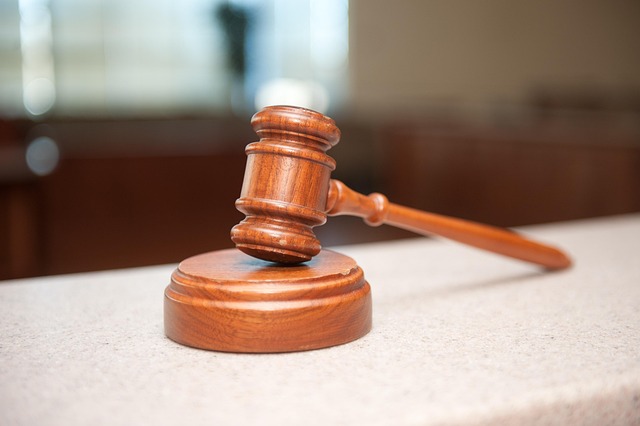The impact of class action lawsuits on companies is significant, affecting their public image, financial stability, and market standing. These lawsuits serve as a deterrent for misconduct but can be costly and time-consuming to defend against. Effective navigation requires specialized legal strategies, robust internal controls, enhanced governance, and proactive compliance to mitigate risks, protect reputations, and promote ethical conduct.
Securities class actions are a significant legal landscape, with far-reaching implications for companies. This article delves into the intricate world of these lawsuits from a legal perspective, examining their impact on corporate reputation and public image. We explore strategic defenses and offer insights into mitigating future risks, providing essential guidance for navigating this complex domain. Understanding securities class actions is crucial for companies to protect their interests and maintain a positive standing in today’s market.
- Understanding Securities Class Actions: A Legal Perspective
- Impact on Company Reputation and Public Image
- Strategies for Defense and Mitigating Future Risks
Understanding Securities Class Actions: A Legal Perspective
Securities Class Actions from a legal perspective are a powerful tool for investors who’ve suffered losses due to alleged misconduct by companies or their representatives. These actions, brought on behalf of a class of individuals with similar claims, can have a significant impact on both the accused parties and the broader business landscape. When a class action lawsuit is filed, it not only seeks redress for the immediate victims but also sends a strong message to other potential wrongdoers, deterring future violations.
The effect of these lawsuits on companies is multifaceted. On one hand, they can result in substantial financial settlements or judgments, which can severely strain corporate resources, particularly for smaller businesses. Conversely, successfully defending against such actions can bolster a company’s reputation by demonstrating its commitment to ethical practices and transparency. Additionally, the legal process itself can be lengthy and costly, often involving complex issues of law and fact, requiring specialized expertise in general criminal defense or white-collar defense strategies. Ultimately, the impact on respective businesses hinges on their ability to navigate these legal challenges effectively while ensuring compliance with securities regulations to prevent similar future instances.
Impact on Company Reputation and Public Image
The impact of class action lawsuits on companies can be profound, often reshaping their public image in significant ways. When a company faces such legal actions, it immediately attracts widespread media attention, which can have both positive and negative effects. While this scrutiny may expose potential wrongdoings and spark much-needed transparency, it also invites public judgment, potentially damaging the company’s reputation for integrity and accountability. The nature of these lawsuits, particularly those involving white-collar and economic crimes, often results in intense media coverage that can be hard to control or mitigate.
As class action lawsuits unfold, corporate narratives are scrutinized, and every development becomes a public spectacle. This can lead to a loss of trust among both corporate and individual clients who may perceive the company as being more concerned with legal defenses than with addressing legitimate client concerns. Achieving extraordinary results in these situations is not just about winning or losing the case but also about how the company navigates the public relations landscape during and after the lawsuit, which can make or break its standing in the market.
Strategies for Defense and Mitigating Future Risks
In response to the impact of class action lawsuits on companies, a robust strategy for defense is paramount. Law firms specializing in securities litigation should focus on meticulous documentation and early intervention to mitigate potential risks. By reviewing and fortifying internal controls, companies can better protect themselves against future suits, ensuring compliance with regulatory requirements and fostering transparency. This proactive approach includes enhancing corporate governance structures and implementing rigorous due diligence processes, which not only defend against immediate legal challenges but also safeguard the company’s reputation and financial stability.
Moreover, building an unprecedented track record of successful defense in securities class actions can significantly enhance a company’s resilience. Engaging experienced legal teams that understand the nuances of both securities law and general criminal defense strategies is instrumental. These teams can navigate complex legal landscapes, uncover vulnerabilities in plaintiff claims, and develop compelling arguments to dismiss baseless lawsuits or achieve favorable settlements. Such measures not only protect corporate and individual clients but also send a strong signal to potential plaintiffs, deterring future litigation and fostering a culture of accountability and ethical conduct within the organization.
Securities class actions, while complex and costly, present a unique challenge for companies in today’s regulated market. Understanding the legal nuances and anticipated public reaction is crucial for effective defense strategies. By proactively assessing risks, implementing robust internal controls, and fostering transparent communication, businesses can mitigate the impact of such lawsuits on their reputation and long-term success. The key lies in navigating these complex scenarios with a strategic eye, ensuring survival and prosperity amidst legal storms.






